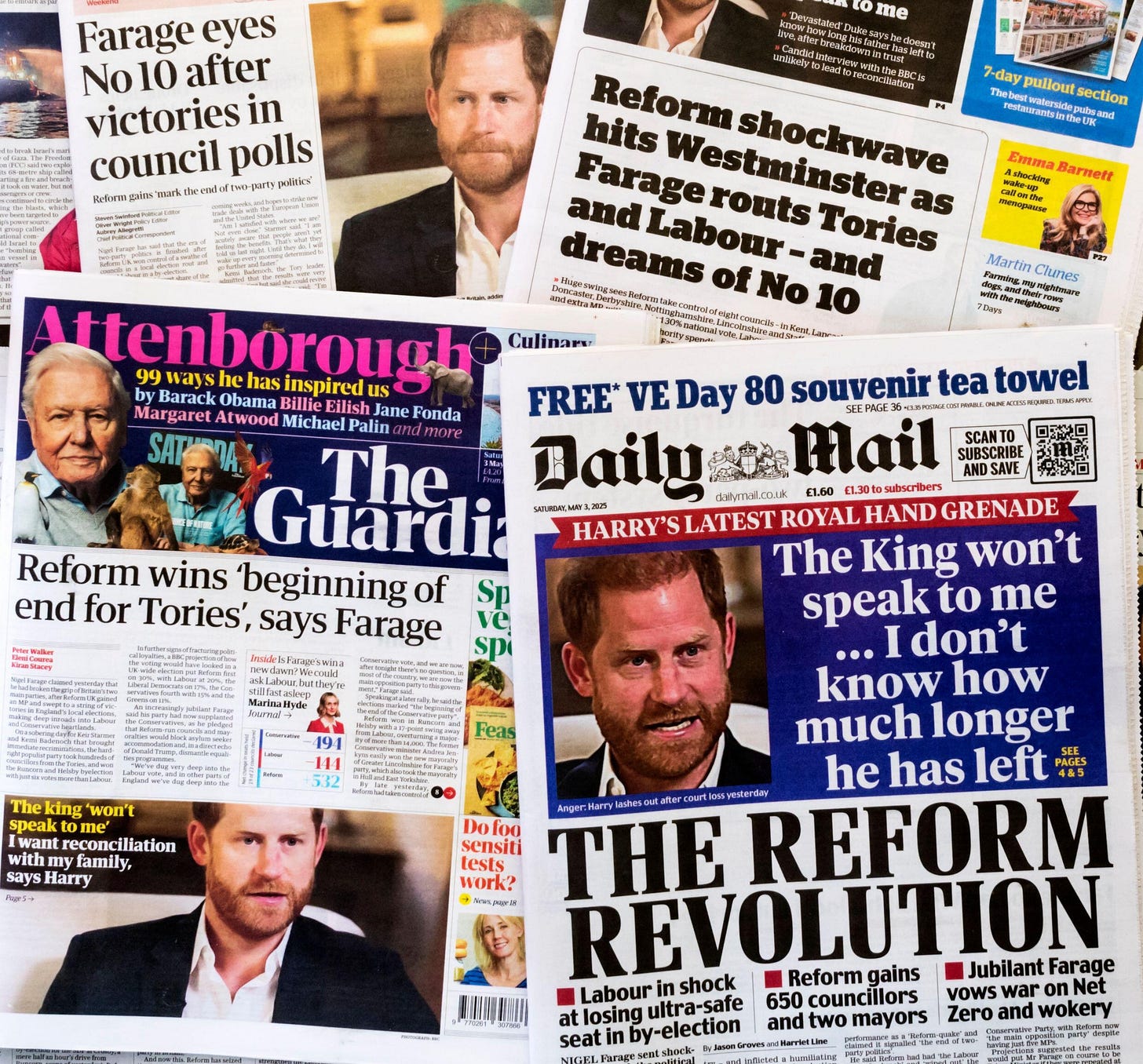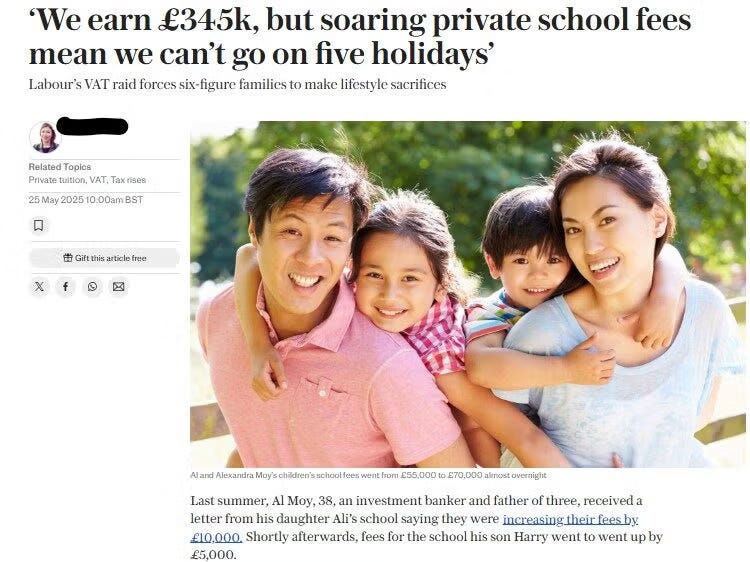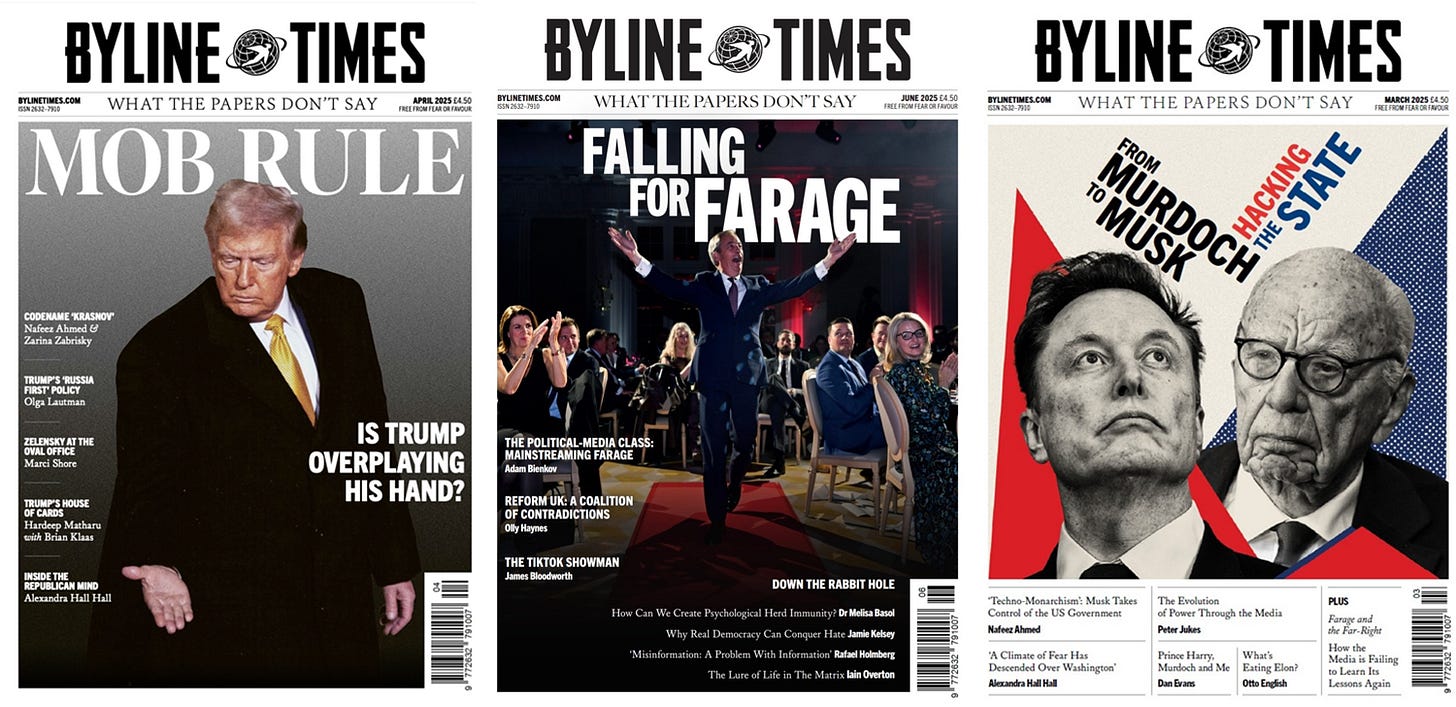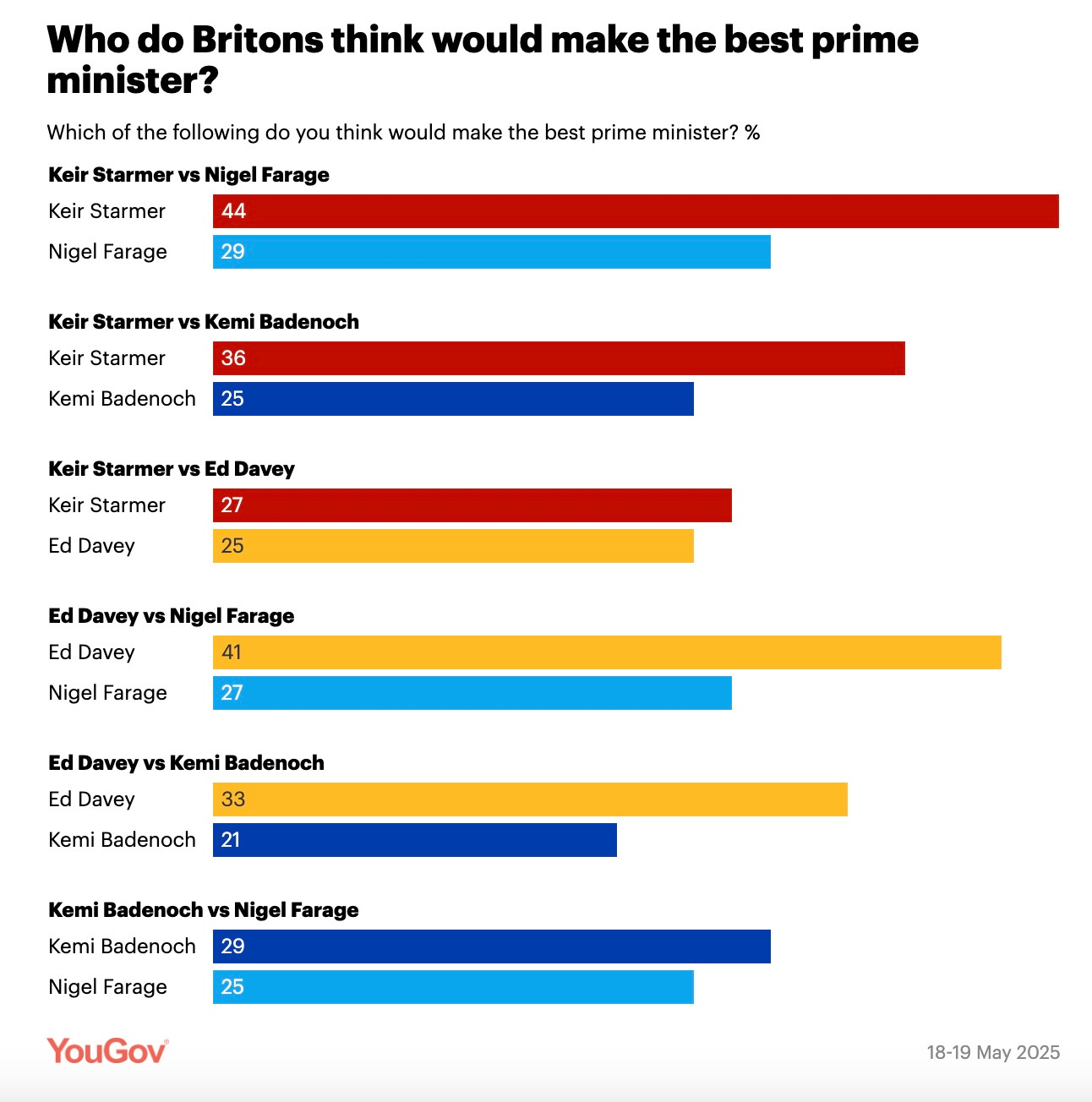How the Media is Trying to Talk a Nigel Farage Government Into Reality
Why for much of the British press, the unlikely story of Reform UK's rise to power is simply "too good to check"
You can tell how invested much of the media has become in the rise of Reform UK by the coverage of the recent Hamilton by-election.
In the run up to the vote, gallons of ink were spilled on the suggestion that Labour would likely lose the contest to Nigel Farage’s party.
“We can be sure of only two things” wrote the former Labour MP, turned Conservative-supporting Telegraph columnist, Tom Harris.
“That Labour has thrown every resource it possibly can at this campaign. And also that it isn’t going to win”.
“In fact it is more likely to come third”.
Across the political spectrum, news outlets suggested that a “Farage tsunami” would sweep the seat into Reform’s hands, due to voter unhappiness with Labour.
“Voter dissatisfaction could give Reform a Holyrood by-election boost,” reported the Guardian, with the Spectator foreseeing that a Reform victory in Hamilton would be “just the beginning” of the party’s capture of seats north of the border.
There was only one problem with this. The predicted ‘Farage tsunami’ never arrived.
Although Reform’s vote did significantly increase in the seat compared to previous elections, they still came in third place, with Labour instead gaining the seat from the SNP.
By any measure this was a good result for Keir Starmer’s party. Yet that was not how it was reported.
“Labour’s by-election win is no victory for Starmer” instead claimed the Times, in a headline that appears to have redefined what the word “victory” actually means.
“Rather, once again it is Reform’s political prospects that now look brighter.”
So when Labour wins, it’s actually a defeat, but when Reform loses it’s actually a victory.
Heads Reform wins, tails Labour loses.
‘Too Good to Check’
There is a saying in British journalism about some stories being simply “too good to check”.
There was an example of this phenomenon earlier this week when the Telegraph had to withdraw a story about a family of bankers being forced to “sacrifice” their lifestyle due to “Labour’s VAT raid” on private school fees.
The story had been published by the Telegraph, despite the family in question not actually existing, and despite it actually having been invented by a “PR working for financial planning firm Saltus.”
When the original story was published, a number of social media users quickly questioned its authenticity, along with the apparently 13-year-old stock images used to illustrate it.
Yet no such doubts appear to have occurred to the paper, which had run it unquestioningly for the apparent reason that it’s central message fitted in so neatly with its long-running campaign against Labour’s tax on private school fees.
It was, to put it simply, too good to check.
A similar reluctance to check has become a feature of the coverage of Reform’s recent rise in the polls.
That Farage’s party has surged since last year’s general election is undeniable. The party won a big victory in last month’s local elections and is currently leading in every national opinion poll. There are good reasons for both the Labour party and the Conservatives to worry about what this means for their electoral prospects in a few years time.
This is especially the case because of the misguided strategies that have been adopted by both the major parties towards Farage so far. There was an excellent example of this on Friday, when the Conservative leader Kemi Badenoch delivered yet another speech about immigration, during which she claimed, bizarrely, that Reform UK was just “another left wing party”.
Yet despite posing as the leader of a more right wing version of Reform, she refused to make the same ultra-right commitment to leaving the ECHR that has already been made by Farage, suggesting that she would only do so following a legal “review” later in the year. As with Labour’s own recent hardline rhetoric on immigration, Badenoch proved again that when it comes to competing with Farage on such issues, his rivals are always going to fall short.
That this strategy is a dead end for the Conservatives was shown once again by the party’s dire showing in the Hamilton by-election, where they came a very poor fourth, with just 6% of the vote. Responding to the result on Friday, Badenoch insisted that “Larkhall is not the place where the Conservative party fightback starts", begging the question as to where, if anywhere, it actually will.
Yet just because the Conservative party is currently flirting with its own demise, does not mean that it will permanently continue to do so. With Robert Jenrick increasingly grabbing attention on social media, and in the press, the likelihood that the party will move to oust its current dead-end leader is growing by the day.
Similarly, while Labour’s attempts to out-Farage Farage on immigration, and other culture war issues have gone exactly as badly as predicted, there are already signs that Downing Street is starting to recalibrate. Whatever mistakes he has made so far, the one thing we know about Keir Starmer is that he has zero shame in completely reversing political direction and strategy, if he believes it could be to his advantage. However bad things may currently look for this Labour Government, there are good reasons to believe that a political recovery is still well within its grasp.
Unreformed
This is particularly the case given the severe weaknesses of his political opponents.
Because however much the press is currently talking up Reform’s prospects, the events of this week have shown quite how far Farage and his party still are from being a realistic government in waiting.
The high profile resignation of Reform Chairman Zia Yusuf this week, just days after he launched the party’s flagship “DOLGE” project in the party’s newly-won local authorities, shows just how dysfunctional the Farage operation remains. In every party Farage has led so far, from UKIP through to Reform, he has ended up falling out with his colleagues and falling short at the ballot box. There is little reason to believe that the same won’t happen again this time around.
And while Farage is currently benefiting from obvious public disappointment with Starmer’s moribund performance, there are still very good reasons to believe that the electorate will ultimately stop short of putting Reform into Number 10.
As this recent YouGov polling shows, when it comes to actually picking which of two candidates for Prime Minister they would prefer, Farage comes off worse in every single match up, including against Kemi Badenoch.
This really matters. As the 2015 general election between David Cameron and Ed Miliband showed, however close the headline voting intentions may be, the question of which candidate voters would actually like to see in Number 10 is often decisive.
Labour’s current strategy of setting up the next general election as a “least worst” contest between Starmer and Farage may be a cynical and depressing one, but that doesn’t mean that it won’t ultimately be effective. Faced with a choice between putting Farage and his incompetent band of pub bores in Downing Street, or sticking with the party that won a landslide victory just last year, it still remains likely that voters will ultimately opt for the latter over the former.
There is good recent precedent for this. Across a whole series of recent elections in Europe, Canada and Australia, voters have often ended up plumping for centre left administrations, rather than Trumpist insurgents, despite widespread media predictions that they would do the opposite. It remains very possible, if not overwhelmingly likely, that the same will happen here.
Now that does not mean that Labour should be complacent. It is still possible that Starmer will continue to make the sane sort of basic strategic mistakes he has made so far. It is also possible that the world economy deteriorates to a point where voters opt for whatever change is offered to them, regardless of how unpalatable it may be.
Yet the fact remains that the prevailing media narrative at the moment about Reform UK'’s inevitable rise to power looks to me to be a decidedly dodgy one.








Good analysis of a worrying case of media bias and complicity, Adam. Perhaps a comparison can be made with the level of positive MSM coverage of Moseley in the 1920s and early '30s?
Reform have a good reason to be hopeful. The first past the post electoral system.
Britain is now, in some places, in a seven party fight. Which means fragmentation of the voting which brings parties to power.
The “big parties” are no longer that big. As Labour marches rightwards highlighting immigration it plays into Farage’s happy place. It also alienates the inner city voter comfortable with a multicultural society
As white England, worries about being replaced by Muslim incomers, spurred on by frightening headlines, Farage and the Conservatives, the cities of Britain are less worried. Leave versus remain demographics for the 2020s.
If other parties are competing in the low 20% mark and Labour continues to alienate centre left voters then the electoral system will help. Tens of Labour seats are held by tiny majorities. The winter fuel allowance vote in Runcorn took a seat by six votes. Reform on 30% of the vote may well become a majority Government or, might share the Government benches with a diminished Conservative Party
Labour chasing Reform with no narrative of its own purpose could well lead to collapse in Labour support.
Of course Labour could bring in Proportional Representation to represent voters better and prevent minority rule. Don’t hold your breath. The Labour deathwish is strong.